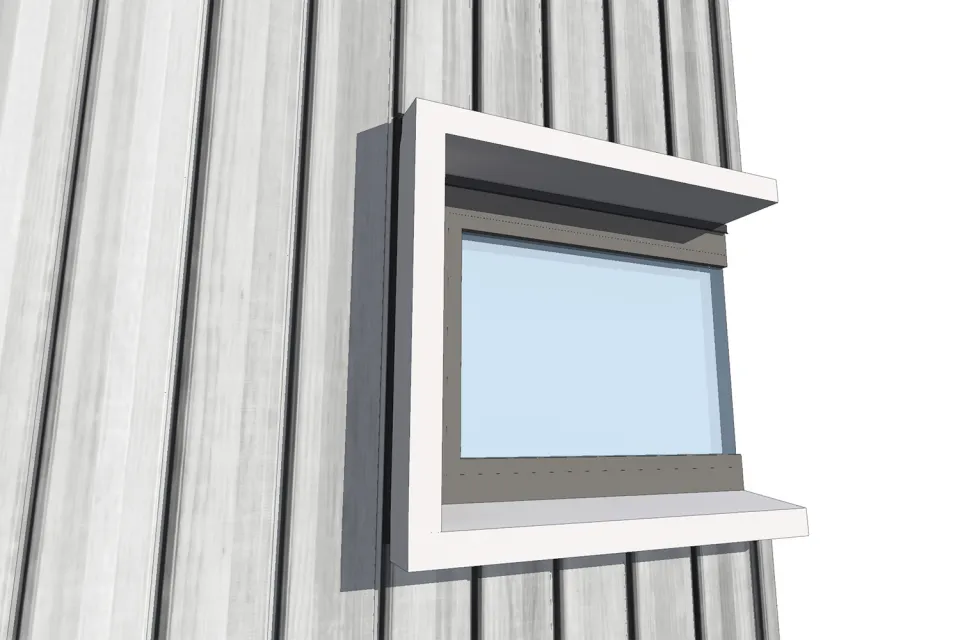-
About
-
Products
- By Timber Product
- Cladding
- Decking
- Joinery
- Screening
- Panelling
- View all
- By Application
- Exterior Cladding / Siding
- Exterior Rain Screen
- Exterior Roofing
- Interior Walls & Ceilings
- Soffits
- Screening, Fins & Battens
- Windows, Doors & Joinery
- Posts & Beams
- Accessories + Samples
- Coatings
- Fixings
- Samples
-
Shop
- Samples
- Timber Samples
- Architectural Sample Box
- View all
- Accessories
- Coatings
- Fixings
- View all
-
Resources
- By Resource Type
- Technical Data Sheets
- Guides & Manuals
- Technical Articles
- Profile Drawings
- View all
- How To
- How To Specify
- How To Install
- How To Maintain
- Projects
- Contact
Timber Window Shrouds
While their primary purpose is for solar shading and privacy, window shrouds also create visual interest.
When fabricated from timber, window shrouds lend contrast to a facade, while also contributing to the contemporary aesthetic of a building. Such an application requires the timber to be stable, which makes Abodo Vulcan a great choice for the job.
The ‘popped out’ aesthetics of window shrouds lend a sense of contemporary whimsy to the facade of a building, while also serving the practical purposes of preventing excessive solar gain and lending privacy. This architectural trend often calls for a timber shroud, but not many timber varieties can withstand this level of harsh exposure to the weather.
Abodo Vulcan is becoming increasingly popular as a window and door material due to its high level of stability, which also makes it a great choice for this application. Created from thermally modified FSC® Certified New Zealand grown pine, Vulcan is laminated in large sections to enhance its stability and performance.
The thermal modification process drives out extractives and resins, resulting in a reduced resin bleed once the timber is in use.
Harder than Western Red Cedar and therefore less prone to warping and fading, Vulcan provides a similar aesthetic to these old growth timbers but does not require as much maintenance.
Its vertical grain pattern also heightens its stability and provides a more efficient surface for any stain or paint applications to cling to, meaning they need not be reapplied so often.
Made from rapidly renewable local timber, Vulcan stores more carbon than is used in its production. With a thermal conductivity rate of ~0.099 W/(mK), the timber has a distinct advantage for those looking to achieve Passive House certifications - or even just wanting to create a warm home without worrying about thermal bridging.
As architectural features, window shrouds are a great way to create a
modern look, and with the use of Abodo Vulcan, this look will be a
lasting one.


